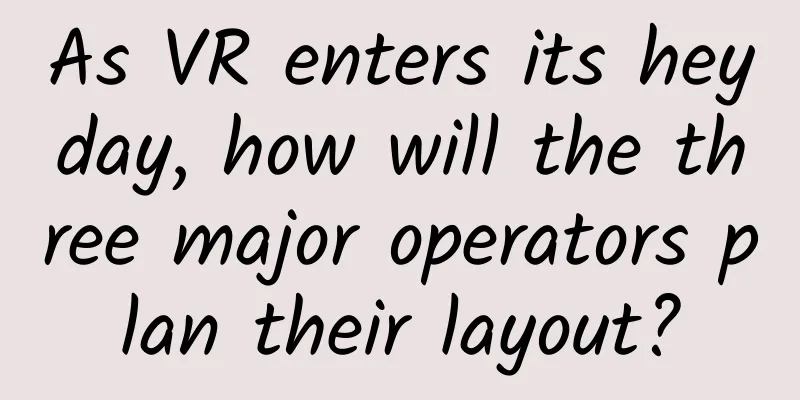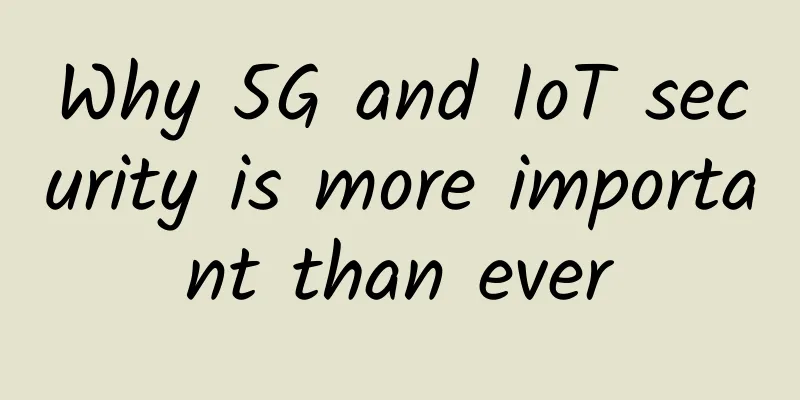You need to be prepared for the coming 6G wireless technology

|
[51CTO.com Quick Translation] A research team is exploring the best alternative technology to 5G: terahertz-based 6G wireless, which is expected to be put into commercial use within 10 years. Just as 3GPP approved global standards for the yet-to-be-released 5G wireless technology this month, we heard news of preliminary plans to develop even faster 6G wireless. The Center for Converged Terahertz Communications and Sensing (ComSenTer) said it is investigating new wireless technologies that will form the basis of 6G. The organization said on its website that 6G users will enjoy speeds of 100 gigabits per second with very low latency. By comparison, the IMT-2020 of the telecom union ITU predicts 5G speeds of around 20Gbps, once the technology is finally released. In other words, much slower than 6G. Such 5G speeds will also most likely only apply to the still-testing high-millimeter frequencies that will appear in the second or higher tiers of 5G. The first ones to take advantage of the lower frequencies will be slower, though. Indeed, Verizon (and Nokia) have been trialing 28GHz millimeter 5G in the US, with transmission speeds of only 1.8Gbps, but with very low latency of only 1.5 milliseconds. "That's 150 times faster than the blink of an eye," Verizon said in a media release. Current mobile wireless network technology (4G) uses frequencies below a few gigahertz and provides common average download speeds below 20Mbps.
Terahertz frequency "High frequencies (between 100GHz and 1THz) will be used for 100Gbps 6G," ComSenTer scientists at the University of Santa Barbara said in a press release. The group runs the ComSenTer Center, part of their school's Semiconductor Research Corporation (SRC). For spectrum comparison, Verizon is currently conducting initial 5G millimeter trials (along with Qualcomm and Novatel Wireless) that only reach 39GHz of spectrum. “Our center is fully dedicated to the next generation of communications and sensing technology. This is what could become ‘6G,’” ComSenTer deputy director and UC Berkeley professor Ali Niknejad said on the SRC’s website. The researchers claim that “extreme densification of communications systems enabling hundreds or thousands of simultaneous wireless connections” will be part of 6G, “with 10 to 1,000 times higher capacity than near-term 5G systems and networks.” Scientists say wireless technology faster than 5G will improve numerous applications, including medical imaging, augmented reality and sensing for the Internet of Things. How to achieve terahertz 6G wireless technology? Spatial multiplexing will be a big part of what researchers are focusing on. This is a technique where multiple independent data signals are sent out as data streams, effectively reusing bandwidth over and over again. For example, MIMO antennas, which are often used today in WiFi and 5G trials, will also be used. This is a way to maximize the use of antennas and take advantage of multiple paths. It also improves efficiency. In general, terahertz requires less power and has greater capacity. But there are problems. The higher up the spectrum, the smaller the wavelength, the more obstacles become a problem. There are objects in the way, so it becomes important to transmit around obstacles. This aspect needs to be clarified, and this is true for terahertz 6G as well as 5G, but Verizon claims to have achieved better results than 5G. “Millimeter wave signals are more resilient than anyone expected,” Verizon’s Cynthia Grupe said in a separate press release. But 6G is worth exploring: some experts believe that 5G cannot meet the needs of the Internet of Things. 5G millimeter wave bands will "fall far short of the expected demand." "After 10 years from concept to reality, 5G has yet to be implemented in the U.S., so now is the best time to start thinking about the next generation technology," ComSerTer said. Get ready for upcoming 6G wireless, too [Translated by 51CTO. Please indicate the original translator and source as 51CTO.com when reprinting on partner sites] |
<<: Revolutionizing Networking with Edge Computing
Recommend
"Smart cars" drive on "smart roads", Lenovo and Intel work together to enable the coordinated development of vehicles, roads and clouds with 5G+AI computing power
On May 18, Lenovo and Intel jointly demonstrated ...
LTE Triangulation for Indoor Asset Tracking
What is LTE? LTE stands for long-term evolution a...
Image Gallery: TCP/IP Protocol Suite and Security
OSI and DoD Reference Model Relationship between ...
South Korea's three major operators launch service to convert paper documents into text messages
SK Telecom, Korea Telecom and LG Uplus have teame...
10 bad habits network administrators should avoid at all costs
Every enterprise network consists of devices that...
What is the use of "5G+AI"? This comic tells you the answer...
[[425909]] This article is reprinted from the WeC...
Dalian leads the nation in "Internet + Government Services"
Come listen to the stories of several friends and...
You know Bitcoin, but do you really understand blockchain?
When it comes to Bitcoin, everyone should be fami...
Will 5G really kill Wi-Fi? NR-U is here
5G is like an elephant running wildly in the wire...
What is CDN? Is using CDN definitely faster than not using it?
For developers, the term CDN is both familiar an...
DediPath: 1Gbps unlimited dedicated server with 15% off from $38/month, VPS hosting with 45% off from $1.57/month, data centers in Los Angeles/San Jose, etc.
DediPath offers promotional discounts for all its...
5G paves the way for the 14th Five-Year Plan and sets sail for a new era of digital economy
The year 2020 has multiple "identities"...
What are the differences between WAN, LAN, PAN and MAN?
What is the difference between a wide area networ...
Distributed current limiting, everything you want to know is here
Preface In a high-concurrency system, it is very ...
UUUVPS 5th Anniversary 25% off, special VPS annual payment starting from 219 yuan, Hong Kong/US 9929/4837/CN2, etc.
UUUVPS (Sanyou Cloud) is currently carrying out a...









